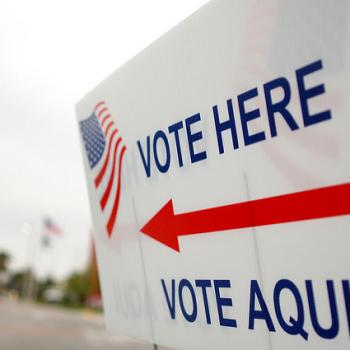This is Day 13 of the 2018 #30Days30Writers Ramadan series.
The Ramadans of my childhood were filled with activities centering upon the mosque I attended in South Florida. The desi uncles serving chai after tarawih. Going into sujūd (prostration) in the 14th rak‘ah and failing to stand back up because I fell asleep. The cacophony of car alarms blaring as I smashed in a couple runs playing cricket in the parking lot after iftar. Ramadan was special, and those moments filled my soul with a richness unlike any other throughout the year.
As an adult, I am starting to realize the [distinctly male] privilege of such experiences. While I may still get a cup of chai at my mosque in Northern Virginia, my Ramadan is inevitably consumed by a completely different set of experiences. Fiqhī (Islamic jurisprudence) discussions among congregants about when Ramadan really starts (or ends). Determining which tarawih location will get me out faster, so I can catch some semblance of sleep before suhoor. And the best of them all, the we-wont-start-tarawih-until-we-fundraise-X-dollars tactic.
One night, while sitting in the muṣallā (prayer hall) listening to a very energetic brother (may Allah preserve him) ask for a 10K donation to “get us started,” he mentioned the statement of ibn ‘Abbās, raḍiya Allahu ‘anhu, that the Prophet ﷺ was “the most generous of people,” and that he ﷺ was “most generous in Ramadan when he would meet Jibrīl[1].”
I assumed the speaker mentioned this hadith to spur the audience to imitate the generosity of the Prophet ﷺ at that moment. But my mind was elsewhere, intrigued by the addition of “when he would meet Jibril.”
I’d heard the hadith before, and simply assumed it meant the Prophet ﷺ was generous with his wealth, however little he had, and with his time amongst the people. However, those explanations did not consider the specificity of ibn ‘‘Abbās, since the Prophet ﷺ was not receiving extra dinars when he would meet with Jibril, nor was he gaining more time to then give to other people.
I began scouring various hadith commentaries, and while reading the famous Fath al-Bari written by ibn Ḥajar al-‘Asqalānī, raḥimahu Allahu, I learned the wording of the hadith in Sahih Bukhārī further states: “and he would meet Jibril every night in Ramadan in order that he (Jibril) would teach him (the Prophet) the Quran.” Ibn Hajar then beautifully explains:
قِيْلَ الحِكْمَةُ فِيْهِ أَنَّ مُدارَسَةَ القُرْآنِ تُجَدِّدُ لَهُ العَهْدِ بِمَزِيْدِ غِنَى النَّفْسِ وَالغِنى سَبَبِ الجُودِ.
Essentially, ibn Hajar raḥimahu Allahu mentions that the teaching of the Quran to the Prophet ﷺ was a means of enriching the soul of the Prophet ﷺ, and richness is the means of giving.
The generosity (jūd) of the Prophet ﷺ was not a monetary one, but a spiritual one, by means of the study and recitation of the Quran. The interaction with Jibril every night in Ramadan allowed the Prophet ﷺ to give of himself and to fulfill his mission as “a mercy to the Worlds. (21:107)” He ﷺ was so enriched, ibn ‘Abbās’s statement ends by describing the Prophet ﷺ as being even more generous than the wind that signals a downpour of life-giving rain.
Ramadan is special, and its breezes grace us every year we are granted life as an opportunity to fill our depleted spiritual stores. These precious nights are meant to make us rich of life, a richness which the Prophet ﷺ said is true richness[2]. Let’s not get caught up arguing over fiqhī differences and loathing the tarawih fundraising, lest we actualize the famous saying of the Arabs:
فاقِدُ الشَّيْءِ لا يُعْطِيْهِ
“The one who has nothing, cannot give anything.”
As we approach the second half of Ramadan, renew your intention to draw close to Allah through His book. Make this month about the Quran, and you’ll find that Ramadan richness, in sha Allah.
[1] Sahih Bukhari, Book 1, Hadith 6
[2] Sahih Muslim, Book 12, Hadith 157














